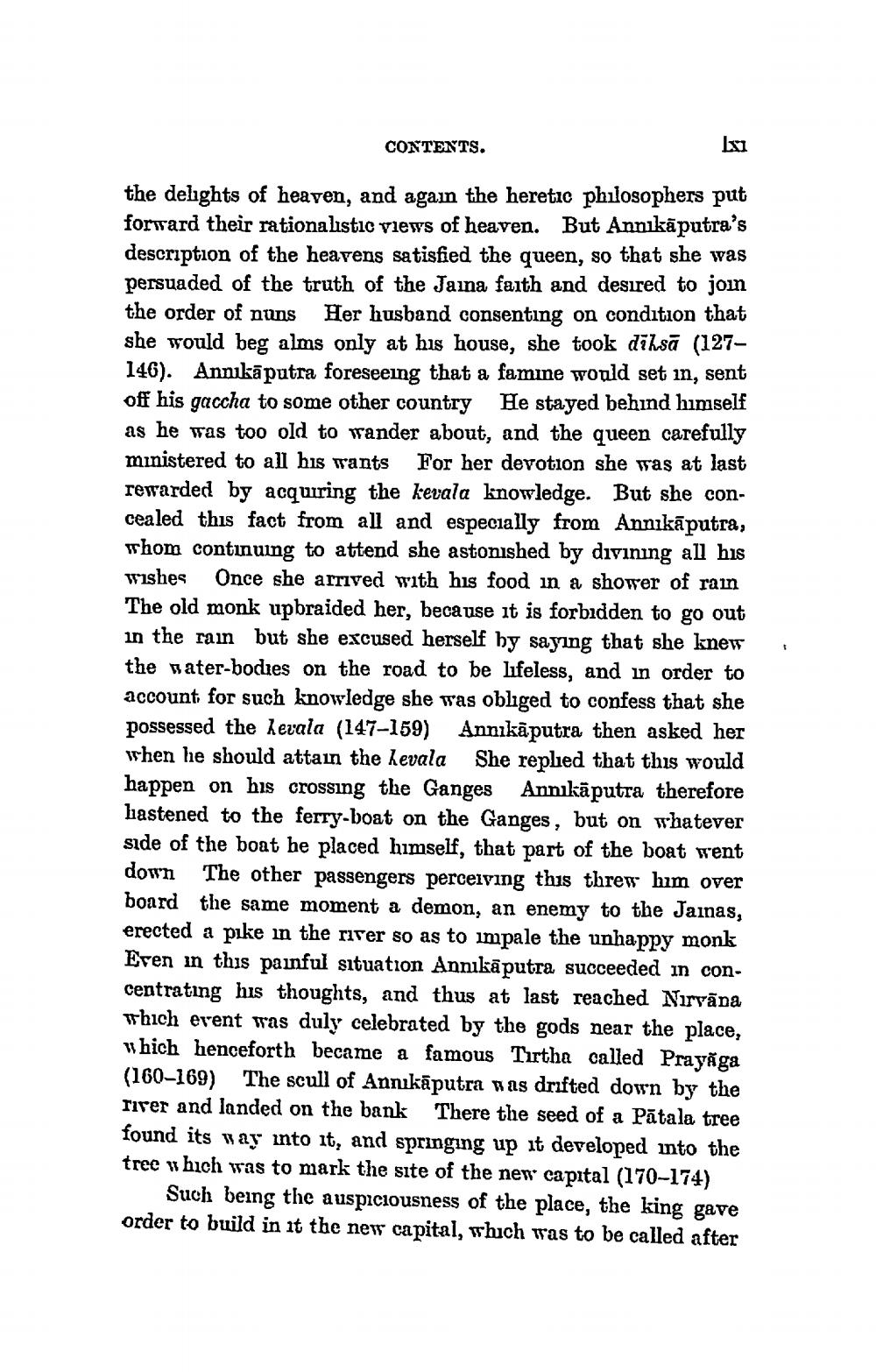________________
CONTENTS.
Lxi
E
the delights of heaven, and again the heretic philosophers put forward their rationalistic views of heaven. But Annikaputra's description of the heavens satisfied the queen, so that she was persuaded of the truth of the Jaina faith and desired to join the order of nuns Her husband consenting on condition that she would beg alms only at his house, she took disā (127146). Annikā putra foreseeing that a famine would set in, sent off his gaccha to some other country He stayed behind himself as he was too old to wander about, and the queen carefully ministered to all his wants For her devotion she was at last rewarded by acquiring the kevala knowledge. But she concealed this fact from all and especially from Annikāputra, whom continuing to attend she astonished by divining all his wishes Once she arrived with his food in a shower of rain The old monk upbraided her, because it is forbidden to go out in the rain but she excused herself by saying that she knew the water-bodies on the road to be lifeless, and in order to account for such knowledge she was obliged to confess that she possessed the levala (147-159) Annikaputra then asked her when he should attain the levala She replied that this would happen on his crossing the Ganges Annikaputra therefore hastened to the ferry-boat on the Ganges, but on whatever side of the boat he placed himself, that part of the boat went down The other passengers perceiving this threw him over board the same moment a demon, an enemy to the Jainas, erected a pike in the river so as to impale the unhappy monk Even in this painful situation Annikaputra succeeded in concentrating his thoughts, and thus at last reached Nirvana which event was duly celebrated by the gods near the place, which henceforth became a famous Tirtha called Prayaga (160-169) The scull of Annikaputra was drifted down by the river and landed on the bank There the seed of a Patala tree found its way into it, and springing up it developed into the tree which was to mark the site of the new capital (170-174)
Such being the auspiciousness of the place, the king gave order to build in it the new capital, which was to be called after




